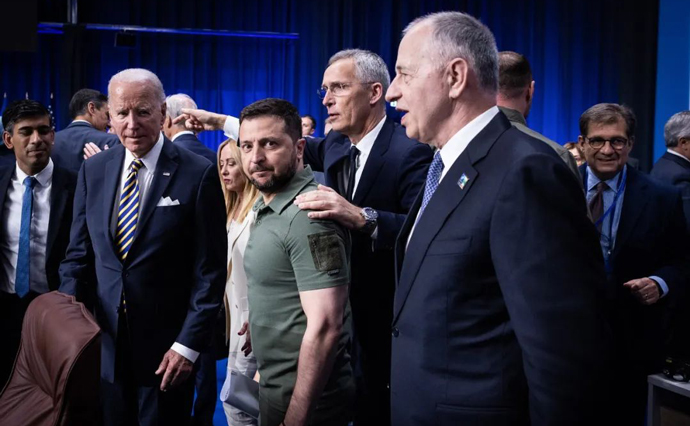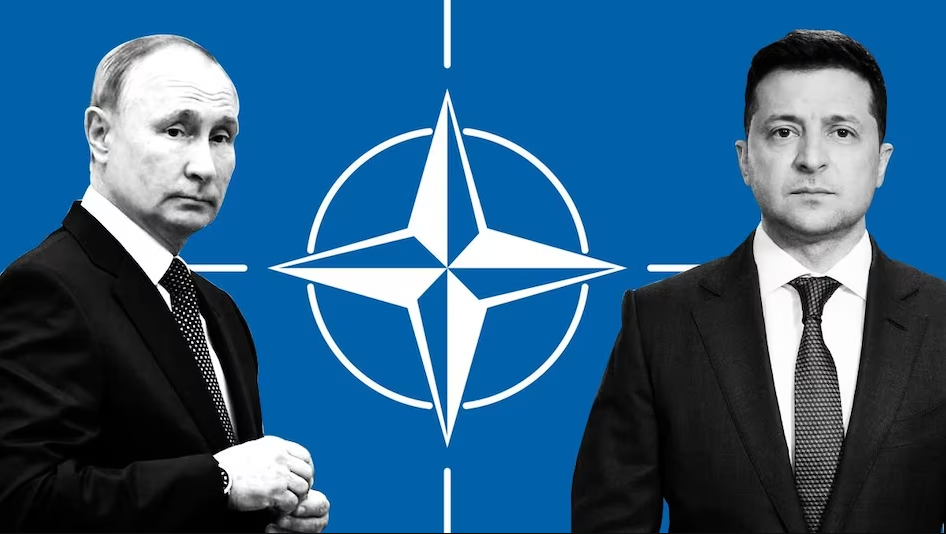Kemel Toktomushev, Research Fellow, University of Central Asia
Apr 12, 2024
While Central Asia is caught between two adversarial powers, it is unlikely to distance itself from Russia and China due to its geographical proximity and the already well-established ties between these nations.
Richard Weitz, Senior Fellow, Hudson Institute
Apr 05, 2024
As the conflict in Ukraine rages on, Russia has fewer nations to turn to to help sustain its protracted incursion save for China. Should the world be more wary of China committing greater resources to helping Russia’s cause?
Xiao Bin, Deputy Secretary-general, Center for Shanghai Cooperation Organization Studies, Chinese Association of Social Sciences
Mar 22, 2024
As more relatively weak countries find themselves unable to stay out of the war, China must walk a careful path. It must avoid and mitigate risks, safeguard its national interests and put Ukraine on the road to peace at an early date. To this end, it needs a more flexible and pragmatic strategy.

Cui Hongjian, Director of the Department for European Studies, China Institute of International Studies
Mar 12, 2024
With Vladimir Putin hinting at the possible use of nuclear weapons and Europe responding more aggressively, the prospect of victory seems to be tilting away from Ukraine. China’s diplomatic maneuvering for peace should set an example for the international community.
Jade Wong, Senior Fellow, Gordon & Leon Institute
Mar 04, 2024
The possibility of another Trump-style leader in the United States — perhaps even Donald Trump himself — has shaken Europe to its roots. Europe cannot replace American hegemony. Thus, its only course is to accelerate toward “strategic autonomy” to become less dependent on the U.S. security umbrella, which has been in place since World War II.
Gu Bin, China Forum expert at Tsinghua University, Associate Professor of Law at Beijing Foreign Studies University
Feb 26, 2024
By funding the war against Russia, Bretton Woods institutions, such as the World Bank and International Monetary Fund, undermine the rule of law as embodied in their charters. They have probably violated principles of economic impartiality, prudence and political non-interference.

Fan Gaoyue, Guest Professor at Sichuan University, Former Chief Specialist at PLA Academy of Military Science
Feb 22, 2024
NATO appears to be preparing to send troops to Ukraine, as the alliance believes it must defeat Russia at all costs. If it does intervene, it will create two major risks that could pull the world into an abyss: A conventional war could become a nuclear war, and a local war could become a world war.
Sebastian Contin Trillo-Figueroa, Geopolitics Analyst in EU-Asia Relations and AsiaGlobal Fellow, The University of Hong Kong
Feb 21, 2024
The ongoing war in Ukraine stands as the paramount geopolitical clash of the 21st century, heralding a definitive return to realpolitik in global governance.
Xiao Bin, Deputy Secretary-general, Center for Shanghai Cooperation Organization Studies, Chinese Association of Social Sciences
Feb 20, 2024
Judging from the current international mood, neither an armistice nor peace talks will likely come about this year, and the war will continue to drag on between Russia and Ukraine. At some point, it will become politically untenable in the West and financially unsustainable in Russia.
Zhong Yin, Research Professor, Research Institute of Global Chinese and Area Studies, Beijing Language and Culture University
Feb 20, 2024
America’s actions that are directly detrimental to China’s interests render China’s cooperation in some regions irrelevant. The good news is that China and the U.S. have agreed to strengthen cooperation. But to ensure concrete results, the U.S. needs to do more.